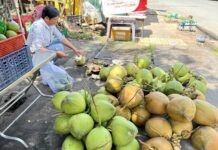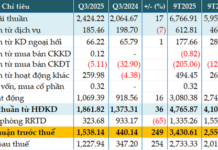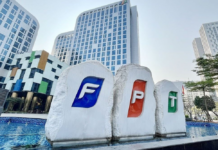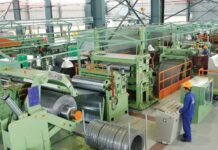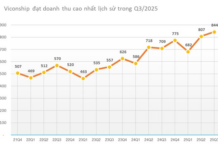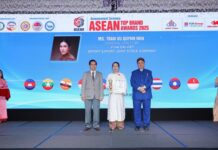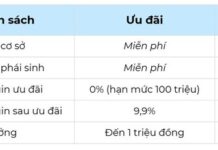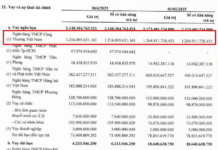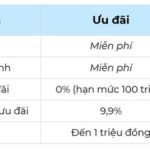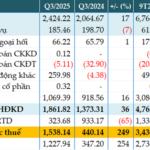Defendant Nhan’s actions constitute a causal relationship between receiving money and issuing the inspection results
Continuing to state their opinions before sentencing, the审判庭 (Collegiate Trial Panel) stated, the defendant Do Thi Nhan (former Director General of the State Bank of Vietnam’s Inspection and Supervision Agency), clearly knew that the defendant Truong My Lan had almost absolute control over SCB, having the sole authority to direct the bank’s operations. However, the defendant Nhan had, through Vo Tan Hoang Van (former General Director of SCB), met Ms. Lan twice to discuss the inspection conclusions.
Through the defendants Van and Dinh Van Thanh (former Chairman of the Board of Directors of SCB), the defendant Nhan received 5.2 million USD from the defendant Lan to preside over the drafting of the inspection results in a way that did not recommend placing the bank under special control and did not recommend transferring the violations to the investigative agencies.
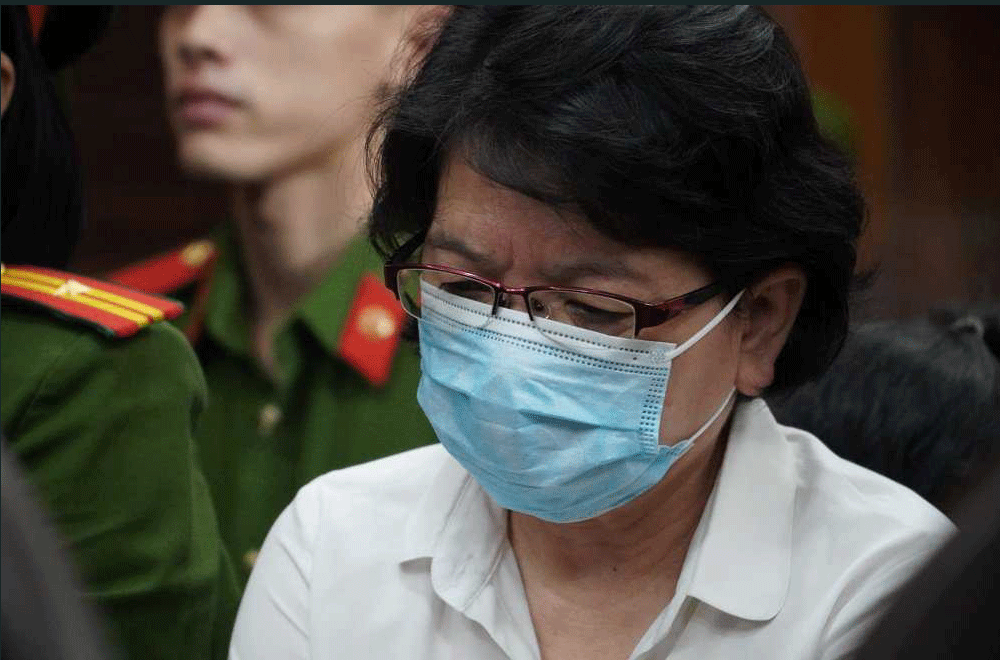
Defendant Do Thi Nhan. Photo: Anh Tu |
The other defendants in the inspection team received gifts and money from SCB, but did not know that the defendant Nhan had met with Van to negotiate with Ms. Lan about the issuance of the results. These individuals also did not know that the defendant Nhan had directed the signing of the inspection report in a way that downplayed the violations at SCB. Therefore, the defendants in the inspection team were not prosecuted for the same offense as the defendant Nhan.
According to the审判庭 (Collegiate Trial Panel), the issuance of the inspection conclusions was the method by which the defendant Nhan negotiated with Ms. Lan in order to receive a bribe of 5.2 million USD. Regarding the times when Ms. Nhan received money, the first time was after the first inspection, the next two times were at the time of soliciting opinions for drafting the inspection conclusions, and the last time was at the time of issuing the conclusions.
Taking into account the entire series of actions, the court found that the defendant Nhan’s meeting with the defendant Lan and instructing the inspection team to overlook SCB’s violations was a dereliction of her prescribed functions and duties. As the head of the inspection team, Ms. Nhan should have reported the decision to transfer the case to the investigative agencies, but instead, she proposed covering up the violations in order to receive money from SCB.
The actions of the defendant Nhan show a causal relationship between receiving money and issuing the inspection results. At the trial, the defendant stated that she received the money in order to protect her family, as she had seen many people involved in the case die. However, the court found this explanation to be baseless.
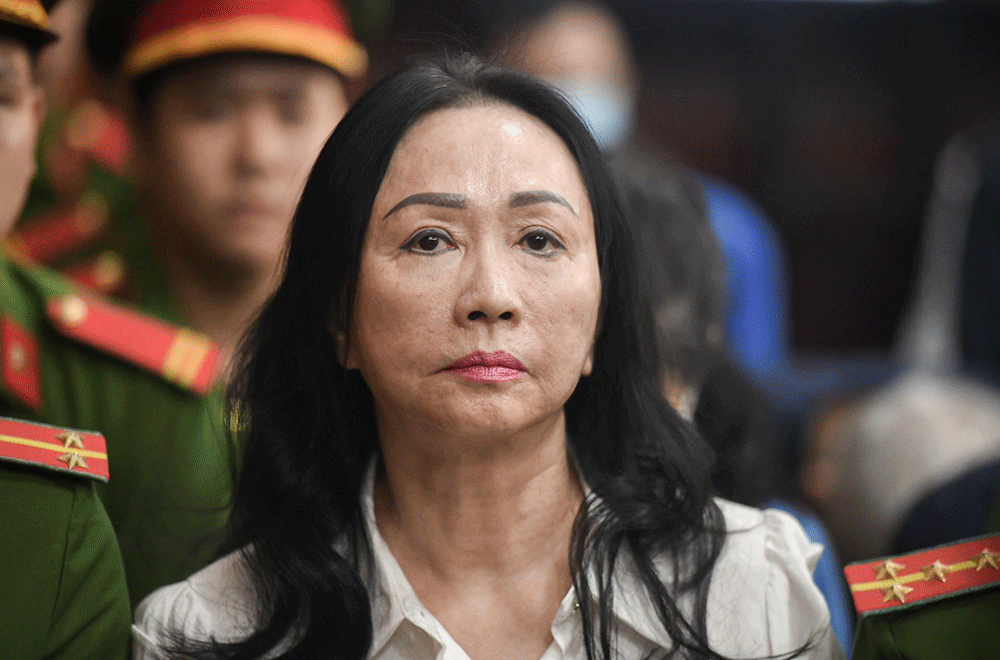
Defendant Truong My Lan. Photo: Anh Tu |
The审判庭 (Collegiate Trial Panel) stated that the defendant Nhan’s receipt of money occurred over a long period of time. If she had not wanted to, she could not have met with the defendant Van four times to receive it, including giving him the password to her private home. Some of the individuals had died when the case was initiated, after the defendant had received the money. The defendant’s defense had no basis and did not align with the objective facts of the case.
Therefore, according to the审判庭 (Collegiate Trial Panel), there is sufficient basis to determine that the defendant Truong My Lan committed the crime of “Bribery”, and the defendant Do Thi Nhan committed the crime of “Receiving a Bribe”.
The most severe penalty must be applied
According to the审判庭 (Collegiate Trial Panel), the criminal acts committed by the defendant Lan and her accomplices were particularly serious, causing especially great damage to SCB, driving the bank into a state of illiquidity. At the same time, the incident caused panic among the public, damaged the reputation of the Party and the State, and eroded the people’s trust.
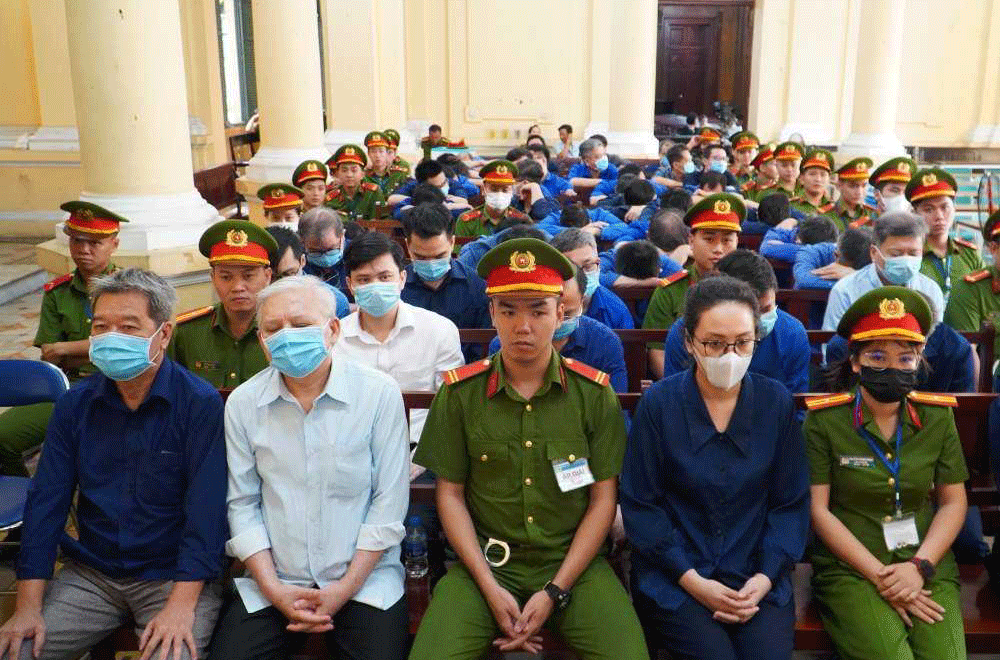
The defendants in court |
The actions of the 85 defendants were organized, with Truong My Lan being the mastermind, ringleader, and director. Therefore, the court believes that the most severe penalty should be applied in accordance with the provisions of the Criminal Code.
During the trial, the defense attorney for the defendant Truong My Lan stated that there was a letter from the CEO of CK Asset Holdings Limited (Hong Kong) sent to the court to discuss the investment method.
According to the审判庭 (Collegiate Trial Panel), this letter only stated the CEO’s vision for the defendant Lan, expressing the hope that investors who were interested would invest.
The审判庭 (Collegiate Trial Panel) believes that the State has always created conditions and encouraged investors. However, within the scope of the trial, that document did not clearly state any specific investment amounts, values, or forms to ensure the defendant Truong My Lan’s ability to remedy the consequences of the case. Therefore, it cannot be considered a document that could contribute to the resolution of the consequences of the case.
Regarding the group of senior SCB executives including Dinh Van Thanh, Vo Tan Hoang Van, Bui Anh Dung, and Tran Thi My Dung, the审判庭 (Collegiate Trial Panel) stated that these defendants had actively assisted Ms. Lan, causing particularly great damage, and therefore should receive severe sentences.
The defendant Nguyen Cao Tri embezzled 500 million VND or more, so he should be punished accordingly. The fact that the defendant Tri returned money to remedy the consequences of the case was considered a mitigating circumstance when sentencing. The审判庭 (Collegiate Trial Panel) noted that the defendant had influenced his family to pay money and had put several real estate properties up to remedy the damage.
For the remaining groups of defendants, the审判庭 (Collegiate Trial Panel) differentiated their roles, levels of action, and considered the aggravating and mitigating circumstances in order to issue appropriate sentences. Many of the defendants were found to have committed the offense twice or more, committed the offense in an organized manner, and used sophisticated methods.
The court accepted the request of the defense attorney, not to consider the use of sophisticated methods as an aggravating circumstance for the defendants Truong Hue Van and Duong Tan Truoc.
Although the defendants Lan and Nhan did not admit their actions, they did acknowledge their responsibility and remedy the consequences. From this, the审判庭 (Collegiate Trial Panel) also assessed that the defendants were remorseful and repentant for their actions.
The court also noted that the defendants Vo Tan Hoang Van and Tran Thi My Dung actively provided statements, helping the investigative agency to clarify the case. This was considered a mitigating circumstance. The审判庭 (Collegiate Trial Panel) took special note of the defendant Dung and considered leniency, reducing her sentence in part.
Many of the defendants have paid money to remedy the consequences of the case, ranging from tens of millions to hundreds of millions and hundreds of billions of VND. The审判庭 (Collegiate Trial Panel) noted this as a mitigating circumstance when sentencing.
Regarding the defendant Truong My Lan’s request to transfer 1,350 billion VND (transferred back by Nguyen Cao Tri and Ta Quoc Hung Viet) to Truong Hue Van to remedy the damage, the审判庭 (Collegiate Trial Panel) considered that the defendant Lan had a very large obligation to compensate and that the defendant’s assets were not sufficient to remedy the damage, so this request was not accepted.
Thanh Phuong


